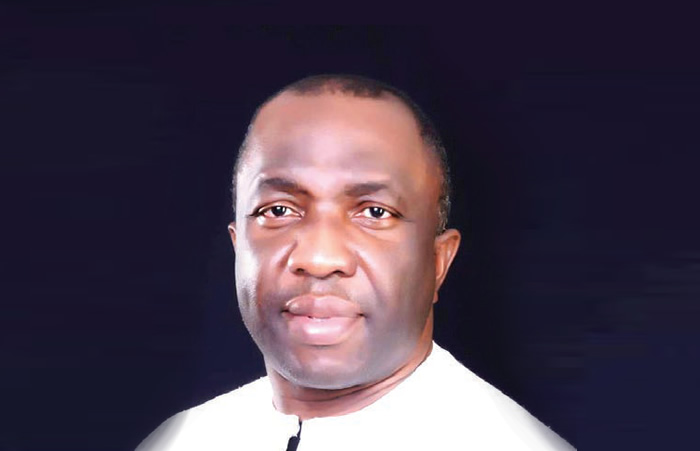
The immediate past National Chairman of the African Democratic Congress, Chief Raph Nwosu bares his mind on the CBN cash withdrawal limits policy in this interview with EL-AMEEN IBRAHIM
How will the Central Bank of Nigeria’s cash withdrawal limits affect your party’s campaign activities?
We have to warn the CBN and its leadership in some way. CBN has to be cautious so that they do not derail our democracy. It’s as if we’re putting so much pressure on ourselves that we’re trying to do something in the last three months before the election. The CBN decided, I think less than two months ago, that they wanted to print new currency.
Between that time and now, they started putting in some very strict rules; all of these are new, especially considering that we are in an election year when political parties have to pay agents. We have almost 200,000 people (agents) for each political party with less than four months until the election.
And the amount to pay ranges from N3,000 up to N15,000; some parties may pay more, like the presidential candidates, the Senate, and the House of Representatives candidates. So, when you have to pay this much money, it runs into a couple of billions of naira. How do you deal with it under these conditions?
Do you believe the policy was targeted at the opposition parties?
Considering the fact that it’s almost the same time that this whole process of wanting to reprint money started, it appears that the Central Bank is doing what they are doing to favour people in power. It’s not good that while the Independent National Electoral Commission is trying to build credibility, other institutions of government and other agencies of government should be supporting them towards building this credibility rather than doing something that will eventually discredit the system and then give INEC a bad name, because after all, the election is about INEC.
Therefore, if we have another chance to have a meeting with INEC, we are going to insist that they have an inter-agency meeting and then deal with the central bank on this, but, as I said before, remove the election part of it, and the government in a country doesn’t change the system just within two months. You must have time to do some promotion, create awareness, and tell people.
The less cash we print, the more dependent we are on the electronic system. We won’t be printing money and spending money on the high cost of printing. It’s good. But you want to change, and for any change process to work, there is a process; it is not draconian. Change is implemented in stages. The CBN policy cannot be shorter than six months.
Is that what the law says?
I’m just looking at what will favour the ordinary person. Changing anything has a process if you want to make it effective. On the political side, as I said, anything that will bring the hard work INEC is trying to do into disrepute must be rejected. So, we are going to work with INEC so that INEC will have an inter-agency meeting, including the central bank, to discuss the realities of our election, and so on. Even if we decide to send N2,000 (to agents) through transfer, you have to employ a lot of people; you still have to send money to different people. If you recruit more hands to help you, you will find that the cost of running the election will be more than the law stipulates, which is another quagmire.
Do you support the House of Representatives’ resolution that the policy should be suspended?
I’m really in the same position, and I also provide solutions. It will be beneficial to have as much of the electronic system operational as possible because printing costs them a lot of money. But then a lot of training has to happen. We have a lot of people in rural areas that will find it difficult to operate these things; don’t oppress them. You must allow enough time.
And if the central bank is trying to save money by not printing so much cash, that is good but you need to spend money to do the essential training: a lot of training within the communities, and so on. You have to create awareness and sensitise everybody.
A House of Representatives member, Mark Gbillah, complained that the CBN governor did not brief the National Assembly before announcing the policy. Is this enough to stop it?
I’m not sure the law says the CBN governor should brief the National Assembly on this. But again, that means that the members of the national assembly have been very negligent in their work because if that is stipulated by the law, they should have been enforcing it and following that law before now. If they have been following it, maybe this type of issue will not apply because they were supposed to be aware of issues that would make their constituents lose business.
Will your party apply to the CBN for waivers to prosecute your campaign?
The Inter-Party Advisory Council as an organisation has to meet. This is not about politics; major stakeholders should reach out to the president on this. You don’t pass draconian legislation that deprives and costs citizens this way; the parties just have to meet with INEC.
So, the collaborative body ensures that their voice and concerns are heard. I think it is like what the media is doing, which I commend. You see, people who have government jobs have this culture that by doing their job, they are doing others a favour, and so on. You are the Central Bank Governor, doing that job, and you have to design your processes and rules and whatever suits the people. You want to go cashless? Wonderful! INEC has been talking about the Biometric Voter Accreditation System for how many years now?
They also tested out BVAS in different elections before saying they were going to apply it massively in this general election. You come up with new currency within the last two months, you come up with new rules and electronics, and you say it’s automatic. You don’t run human organisations like that, and that does not show leadership. For accountants and other financially-inclined people, that is another thing.
And when you deal with money, you now think that this works mechanically; things don’t work mechanically. You are dealing with human beings, and human beings are dynamic and have emotions. You want people to change in a good way. But then, you plan the change process so that the people will become more aware and get used to the new system. You are taking us to a new destination, a cashless society, and now you are moving to a new regime. You’re giving people no time at a critical juncture? That looks very irresponsible.
You are taking us to a new destination, a cashless society, then you now move to a new regime. You want people to change, in a way, it is good. You preached it before, at least you’ve been able to achieve from say N500,000; N200,000 and N150,000. Then you now move to a new regime. At a very critical time, you are giving no time? That’s irresponsible.
So, what are your recommendations to the CBN?
We have to have a proper and well-intentioned monetary policy regime and then also develop a good public relations strategy—how you relate with the people. You know that people are not inanimate things; humans have their minds, they have their souls, they have their spirits, and they have their heads. But all of this cannot be managed electronically or mechanically. So, develop good, sustainable, and dependable monetary policies.
Once that is done, we also develop a way of dealing with humans. If you break it down to human relations, relating to human beings while understanding that they are not animals or things is critical for any leader.
As a matter of fact, to be an effective leader and a good government person, relational agility is critical. If you lack what is known as relational agility, you will fail as a leader.
Organisational leaders must have it, especially if they have to make laws or take decisions that have to do with the entire populace. You must learn how to deal with human emotions; it’s very important. You see, a part of the problem in Nigeria is leadership, and knowing that you lead humans and not things, you do it well.





